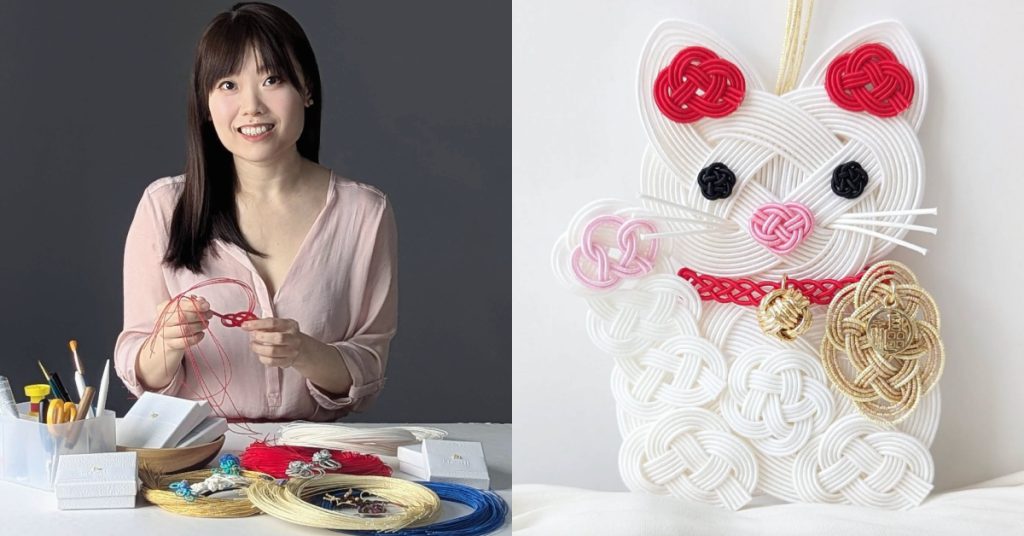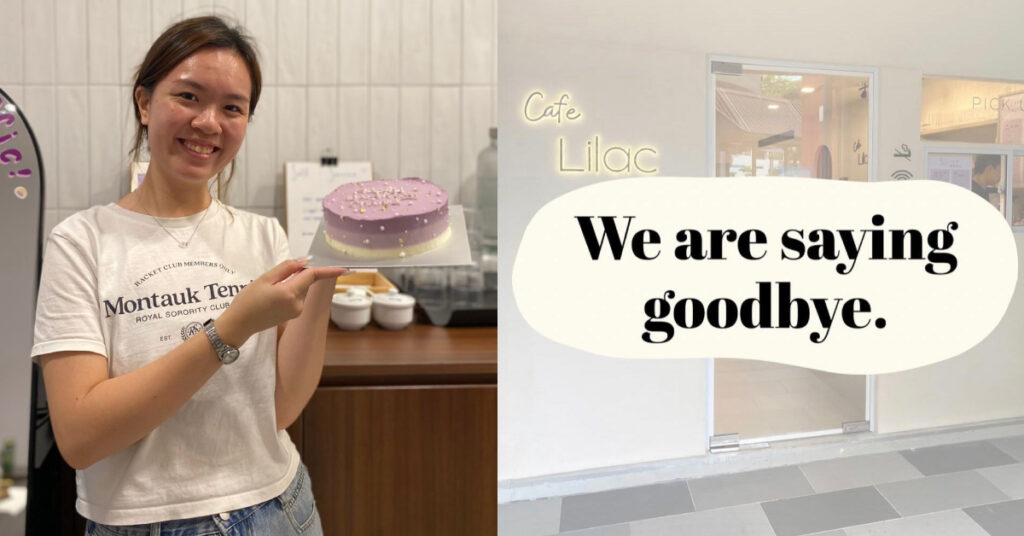There’s a new form of art quietly making its mark in Singapore—one rooted in centuries-old tradition, yet reimagined for modern sensibilities.
Meet Wong Xin Ling, the 43-year-old Singaporean behind KNOTTI. From teaching English in Japan to working at a Japanese recruitment firm in Singapore, Xin Ling’s cross-cultural journey eventually led her to deepen her appreciation for cultural art, which made her fall in love with mizuhiki (水引). This Japanese art form transforms silk-wrapped washi paper cords into intricate knots rich with symbolism.
We spoke with Xin Ling to find out more about her journey, the challenges of sustaining a handmade craft in Singapore, and how she’s reinterpreting this ancient art form for a modern audience.
She discovered it in 2008
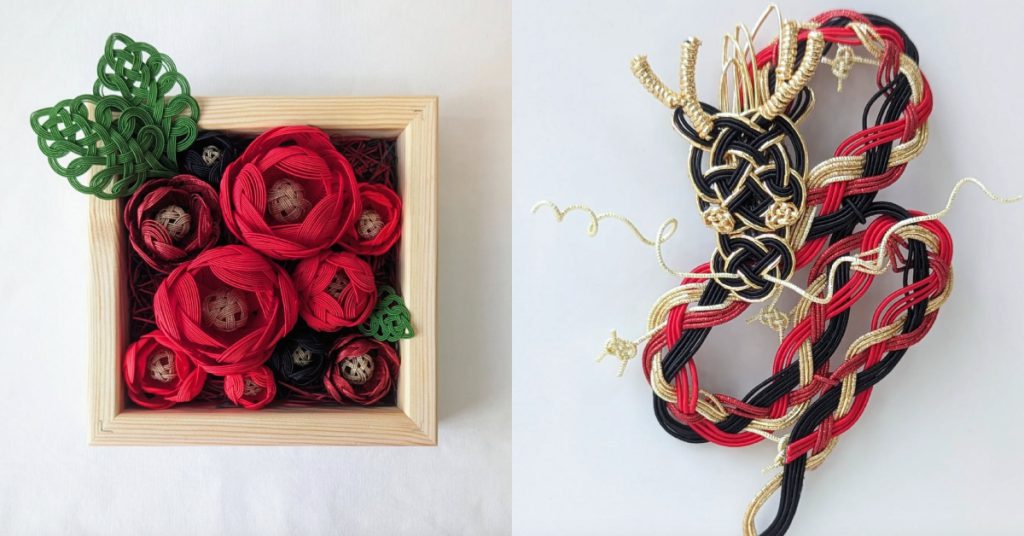
Since ancient times, mizuhiki has long been used in Japan to decorate gifts and envelopes for weddings, festivals, and special occasions—symbolising longevity, good fortune, and wishes.
Xin Ling first discovered the craft in 2008 while teaching in Japan. The intricate knots, each layered with meaning, left a lasting impression on her.
Her love for arts and crafts had always been part of her life—painting, beading, polymer figurines—but mizuhiki struck a deeper chord. “I loved how each knot told a story and carried cultural significance,” she recalled.
But it was only when COVID-19 arrived that Xin Ling finally had the time to practice seriously. Small trinkets made for friends soon caught attention on Instagram, and requests for custom orders began flowing in.
By the end of 2021, KNOTTI was born.
Tradition with a twist
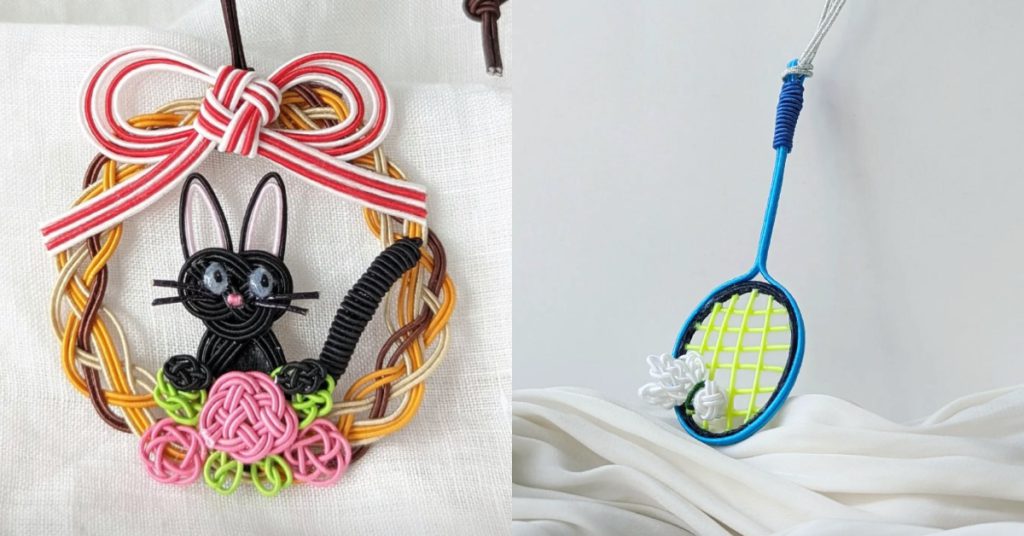
While Xin Ling stays true to the traditional craft of mizuhiki, she reimagines it with a contemporary twist, making her creations more wearable and relatable for a Singaporean audience
By infusing abstract and modern design elements, she has crafted a signature collection that includes brooches, earrings, bag charms, bookmarks, and other decorative pieces.
Each piece is carefully handcrafted and made-to-order. They’re made using high-quality cords imported directly from Japan. To keep shipping costs down, Xin Ling makes it a point to bring back as much material as possible whenever she travels there.
Designs are mostly priced between S$28 and S$300, or more depending on the size and complexity of each design. Inspiration for these pieces often strikes from Xin Ling’s daily life—a bouquet of flowers, a striking colour palette, or even the mood of a song.
Order lead times typically range from two weeks to a month, depending on the order details and time of year.
Custom orders & workshops
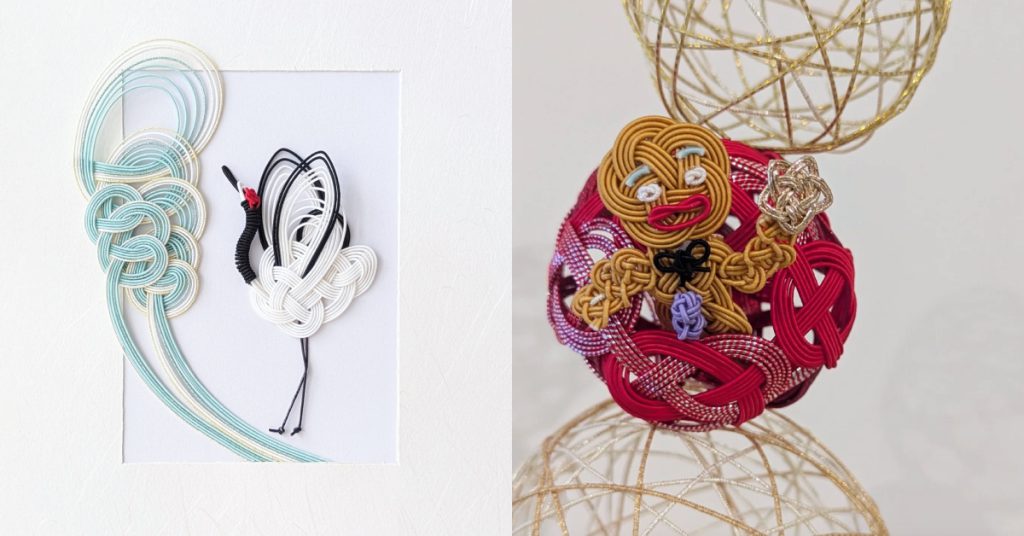
While Xin Ling did not disclose exact sales figures or comment on product demand, she shared that most of her orders are custom commissions.
Many customers request personal touches, from unique colour combinations of existing designs to sentimental keepsakes that honour pets or special occasions.
Xin Ling has dealt with various kinds of requests. “I think of them as unique rather than unusual. There are so many unique projects that revolve around the customers’ daily life, so each project is special.”
Recognising this significance, she takes time to conduct thorough research and study the context behind every commission before beginning.
Workshops have also become another fun part of her journey, where she can spread the art of mizuhiki. She has previously collaborated with the Peranakan Museum and Lumine Singapore, a premium Japanese department store, where festive campaigns paired retail showcases with intimate mizuhiki sessions.
Beyond technique, participants also got to gain insight into the symbolism and cultural meaning behind each knot.
Running a niche business
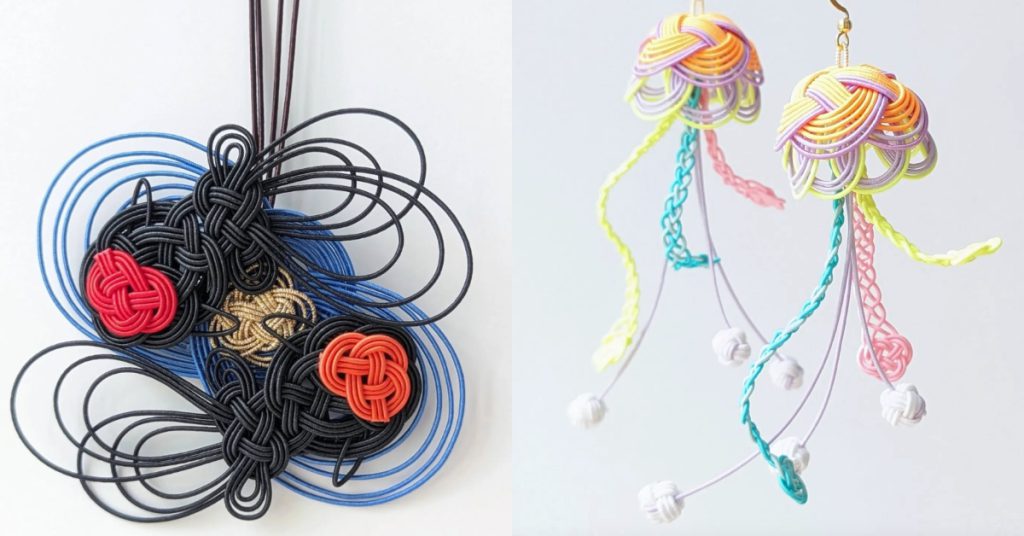
But running a niche business like KNOTTI is far from easy.
Entirely bootstrapped, it relies solely on Xin Ling’s dedication as she runs it solo—but the real challenge, she admitted, lies in balancing creativity with the day-to-day grind.
A typical day involves responding to customer inquiries, creating new designs, fulfilling orders, and managing social media. “It can be overwhelming, especially during peak periods. To prevent burnout, I prioritise tasks, stay organised, and take self-care breaks to recharge my creativity.”
Despite the demands, Xin Ling remains grounded.
“I started KNOTTI as a passion project, not to fill a gap in the market,” she shared. “I’m just happy to flourish in my lane without the noise from the outside world.”
KNOTTI is one of the few businesses bringing traditional Japanese art to Singapore
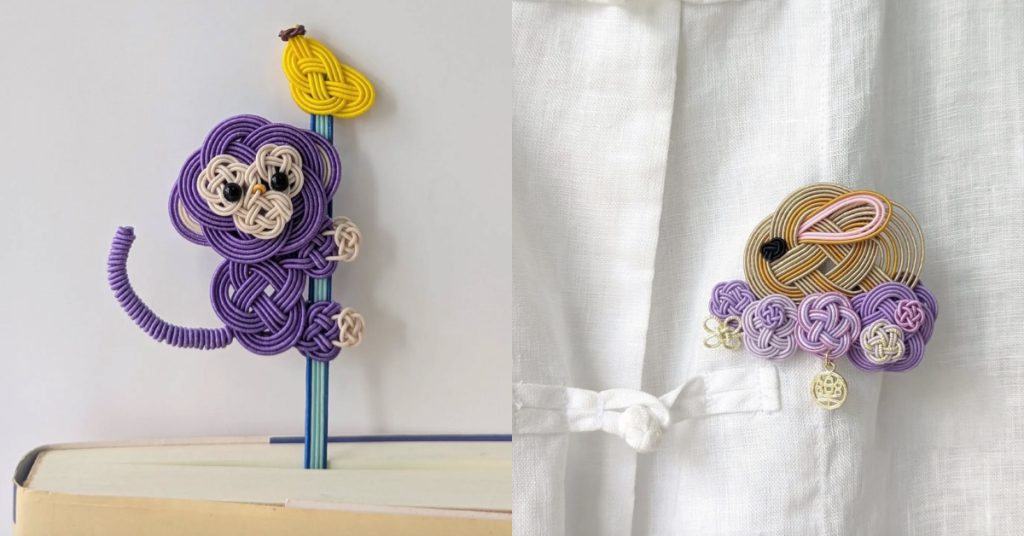
Moving forward, Xin Ling aims to expand her product line and strengthen her online presence in the short term.
Long-term, she hopes to preserve and promote mizuhiki in Singapore while building a community around it. Future collaborations are also in the works to showcase KNOTTI’s unique blend of tradition and modernity, though she did not go into detail.
For Xin Ling, success isn’t about scaling aggressively, but about staying true to the craft and its meaning.
She is one of the very few artisans in Singapore sharing Japanese culture. Through mizuhiki, Xin Ling is sharing its symbolism, techniques, and aesthetic sensibilities to a multicultural society—and in doing so, creating a bridge between tradition and contemporary life.
Featured Image Credit: KNOTTI


